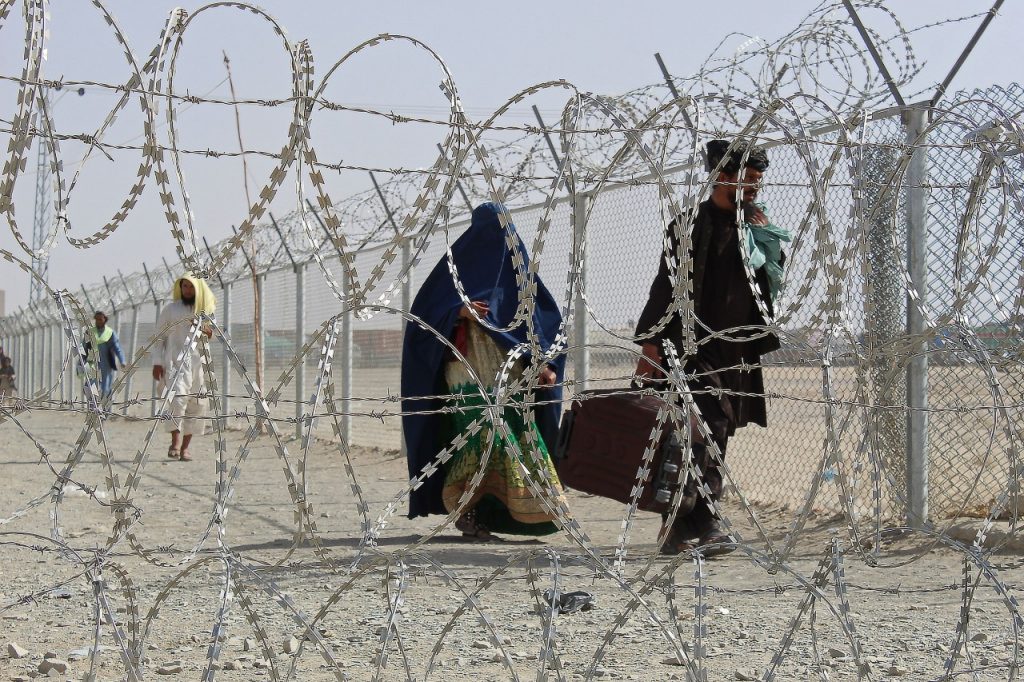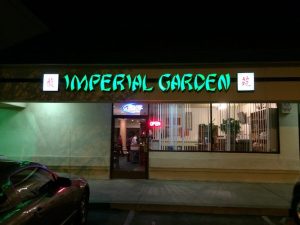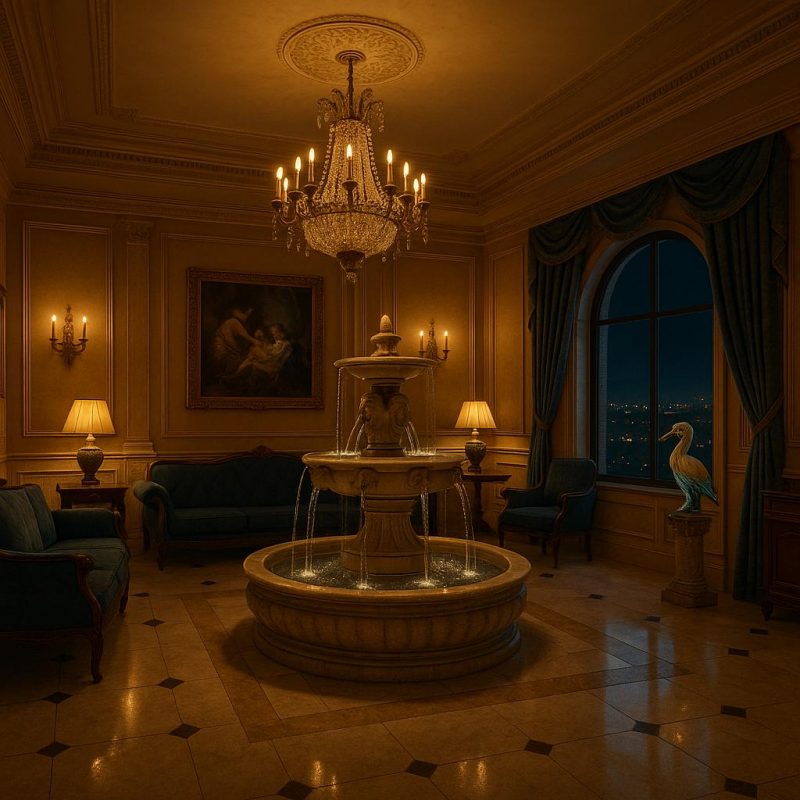Aggregator
Spirituality isn’t rigid dogma. It’s a living, breathing practice that helps make sense of an incomprehensible world | Shadi Khan Saif
I grew up in Kabul and Karachi. In both, I learned the value of the quiet rituals observed while no one is watching
When I was leaving London for Melbourne, my eldest sister-in-law told her kids not to forget the “tradition” – to throw a bowl of water behind me as I stepped out the door. Just a small splash on the ground, a gesture older than borders. “La har azaab po aman se,” she whispered in Pashto under her breath – may all hardship stay away from you. The little ones giggled and waved their goodbyes as they spilled the water, somewhere between shy and amused.
My mother used to do this too, back in Afghanistan. Every time I left for a journey, especially international ones, she’d quietly follow me to the gate with a bowl of water, whispering prayers I couldn’t always hear. But this moment, between two western cities, with children growing up in a world so far from where that habit began, felt different. It was softer. Bittersweet. Like watching an old song being hummed in a new language.
Continue reading...Burqa ban bill approved by Portugal’s parliament seen as targeting Muslim women
If signed into law, the bill proposed by far-right party would follow other European countries in banning face veils
Portugal’s parliament has approved a bill banning face veils worn for “gender or religious” reasons in public, in a move seen as targeting Muslim women who wear face coverings.
The measure was proposed by the far-right Chega party and would prohibit coverings such as burqas (a full-body garment that covers a woman from head to foot) and niqabs (the full-face Islamic veil with space around the eyes) from being worn in most public places. Face veils would still be allowed in airplanes, diplomatic premises and places of worship.
Continue reading...Awareness without action lets genocide continue
Israel violates ceasefire, freed Palestinians bear torture marks
Israeli court extends arbitrary detention of Dr. Hussam Abu Safiya, who was abducted from Kamal Adwan Hospital in December 2024.
Unheard, Unspoken: The Secret Side Of Grief
It was the 27th day of Ramadan. After Fajr, it felt like any other day — ordinary, quiet — until the evening, when everything changed.
We hear about the passing of brothers and sisters in Islam, but losing someone close to you is different; most people aren’t prepared for it. That day replays in my mind, minute by minute. Twenty minutes before maghrib, I ran into my mother’s room, trying to wake her. My wife began CPR until help arrived, and we rushed to the hospital. I stood on the other side of the words we hear in movies: “We tried everything we could, but unfortunately, your mother has passed away.” I collapsed like a child, and in that moment, I accepted that my life would never be the same.
The Silence After the BurialThe first few days after my mother’s passing moved quickly. From the ghusl, the janazah, the burial, the steady stream of family and community who surrounded us with prayers, food, and support. In many ways, those early days carried me on autopilot. The structure of our faith and the presence of loved ones softened the initial blow. But then comes the question: what happens next?
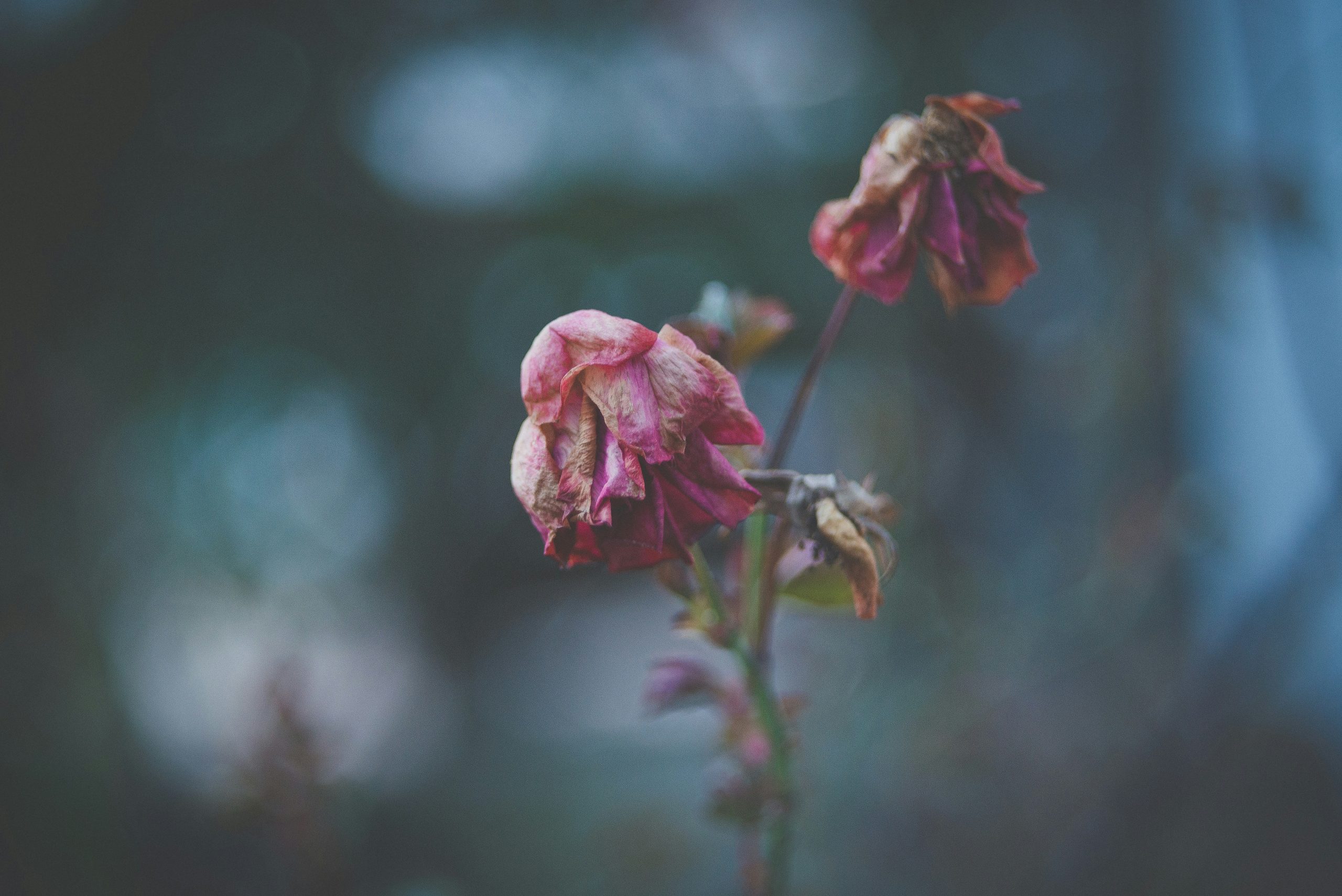
“The stillness of a chair, the absence of a voice, the memories that return uninvited, sharp and vivid. That silence speaks volumes, but only to those who live inside it. No one else can truly feel that particular pain, because it belongs uniquely to you.” [PC: Silvestri Matteo (unsplash)]
Over the following week or two, people continued to check in: friends, relatives, colleagues, and even people we haven’t spoken to in years. They called, they visited, and they brought meals. Their kindness meant more than words could capture. Yet, slowly, life began to call them back to their routines. People moved on, and the days got colder. What they couldn’t see and what no one can truly enter into is the quietness of the home after everyone leaves. The silence that echoes through rooms once filled with laughter or simple conversation. The emptiness of a chair, the absence of a voice, the memories that return uninvited, sharp and vivid. That silence speaks volumes, but only to those who live inside it. No one else can truly feel that particular pain, because it belongs uniquely to you.In those moments, a realization sets in: nothing can really prepare us for loss. No book, no story, no imagined scenario. Grief strips away our illusions of control and reminds us how fragile we are. We are vulnerable, we are temporary, and we are completely dependent. In that raw state, one truth becomes undeniable — Allah  is in control of everything. He is Al-Ḥayy (The Ever-Living), while we are travelers destined to return to Him.
is in control of everything. He is Al-Ḥayy (The Ever-Living), while we are travelers destined to return to Him.
We grow up hearing the phrase: Innā lillāhi wa innā ilayhi rājiʿūn. “Indeed, to Allah we belong, and to Him we shall return.” It is said almost automatically when we hear of someone’s passing or any kind of hardship. But what does it really mean?
The Prophet ﷺ taught us that when a calamity strikes and a believer says these words sincerely along with the duʿāʾ, “Allāhumma ajirnī fī muṣībatī, wa akhlif lī khayran minhā” — Allah promises to reward that person and to replace their loss with something better. [Sahih Muslim]
On paper, it is easy to read. But when the loss is someone so close: a parent, a sibling, a spouse, or a child, the words carry a weight that shakes your very being. This isn’t just “a calamity.” This is someone you saw every day, shared meals with, traveled with, laughed with, and someone who knew you almost as well as you know yourself. Suddenly they’re gone. The phone calls that once came so naturally now go unanswered. The little routines that felt permanent are no longer possible. And the question creeps in: Where did they go?
The truth is, they were never truly ours to begin with. They belonged to Allah  . He is the One Who gave them life, sustained them, and protected them. We were simply entrusted with their presence for a time. Like a borrowed pen at school, which you use for a while, but eventually it must be returned to its rightful owner. The difference is, this “pen” was your whole world, your comfort, your love. And yet, even they must return to the One Who created them.
. He is the One Who gave them life, sustained them, and protected them. We were simply entrusted with their presence for a time. Like a borrowed pen at school, which you use for a while, but eventually it must be returned to its rightful owner. The difference is, this “pen” was your whole world, your comfort, your love. And yet, even they must return to the One Who created them.
This realization is painful, but it is also freeing. Innā lillāhi wa innā ilayhi rājiʿūn becomes more than words. It becomes a lens through which we see the reality of life, loss, and our ultimate return. We have returned the loved one to their rightful owner, and Allah  is the best of caretakers.
is the best of caretakers.
- Time doesn’t heal all wounds. People often say, “time heals everything,” but that isn’t true. Time allows you to accept reality, but it does not erase the wound. Nothing truly heals except recognizing the essence of life — that this world is temporary and the real life is the eternal one. Your loved one is not lost; they are simply ahead of you on the journey, and you will follow when Allah
 wills.
wills.
- You will feel lonely. Loneliness can feel heavy, but it can also be a gift. The Prophet ﷺ himself would retreat to Mount Ḥirāʾ in solitude before revelation. Use your moments of loneliness to turn back to Allah
 , to speak to Him
, to speak to Him  , and to find strength in His Company. Going on hikes, walks, and looking at the creation of Allah
, and to find strength in His Company. Going on hikes, walks, and looking at the creation of Allah  while talking to Allah
while talking to Allah  will help this feeling.
will help this feeling.
- Your heart will feel uneasy. Grief doesn’t move in a straight line. There will be days that feel normal, and then suddenly the weight returns. In those moments, hold fast to the promise of Allah: “Verily, in the remembrance of Allah do hearts find rest” [Surah Ar-Ra’ad; 13:28]. Fill those pauses with dhikr, with prayer, with the Qur’an — and you will find the unease gently softened.
- You will cry. Tears will come — and they should. Crying is not a weakness. It is mercy. The Prophet ﷺ himself cried at the loss of his loved ones. When his son Ibrāhīm passed away, tears flowed from his eyes. When asked about it, he said: “The eyes shed tears and the heart grieves, but we do not say except that which pleases our Lord.” [Bukhārī and Muslim] Let your tears flow, and let them turn into duʿāʾ for the one you have lost.
- Don’t expect the pain to vanish. Grief doesn’t disappear one day. It softens, it changes shape, but it never fully leaves. The absence of someone you loved will always be felt, and that’s a sign of the bond Allah
 placed between you.
placed between you.
- Don’t expect others to fully understand. Family, friends, and community may offer comfort, but they can never truly feel your exact loss. Each grief is unique. Expecting others to “get it” in the same way you do will only deepen the hurt. Instead, lean on Allah
 , the One who knows what is in every heart. This is your test and may not be theirs.
, the One who knows what is in every heart. This is your test and may not be theirs.
- Don’t expect the world to pause. For you, life has changed forever. For others, it continues as normal. People will move on, routines will resume, and calls will slow. This is natural. It doesn’t mean your loved one is forgotten, but it means you must carry their memory in your own way. Don’t have high expectations even from your closest friends and family.
- Don’t expect faith to erase sadness. Sometimes we imagine that strong faith means we shouldn’t feel broken. “I pray so I should be strong”. Yaʿqūb
 wept until his eyes turned white from sorrow over Yūsuf
wept until his eyes turned white from sorrow over Yūsuf  . Our faith isn’t as strong as Yaʿqūb
. Our faith isn’t as strong as Yaʿqūb  , but even at that level, we learn that strong faith doesn’t remove sadness; it gives you the strength to carry it with patience and hope.
, but even at that level, we learn that strong faith doesn’t remove sadness; it gives you the strength to carry it with patience and hope.
There is no manual for grief, no checklist that makes the pain easy to manage. But there are steps we can take to prepare our hearts and our families for the reality of loss.
Here are a few reflections that may help:
- Study the stories of the Prophets and Companions. Allah
 tells us: “Indeed, in their stories there is a lesson for those of understanding.” [Surah Yusuf; 12:111] We spend so much energy teaching ourselves and our children how to live in comfort and “succeed” in this world, but the greatest people who ever lived, the Prophets and Companions, endured the greatest struggles. Their trials drew them closer to Allah
tells us: “Indeed, in their stories there is a lesson for those of understanding.” [Surah Yusuf; 12:111] We spend so much energy teaching ourselves and our children how to live in comfort and “succeed” in this world, but the greatest people who ever lived, the Prophets and Companions, endured the greatest struggles. Their trials drew them closer to Allah  and became timeless examples for us. While we don’t ask to be tested, when we are, their lives remind us how to respond with patience, resilience, and trust in Allah
and became timeless examples for us. While we don’t ask to be tested, when we are, their lives remind us how to respond with patience, resilience, and trust in Allah  .
. - Teach your children who Allah
 is. The Prophet ﷺ said: “Be mindful of Allah, and He will protect you. Be mindful of Allah, and you will find Him before you… If you ask, ask of Allah; and if you seek help, seek help from Allah.” [Tirmidhī] From a young age, connect your children’s hearts to Allah
is. The Prophet ﷺ said: “Be mindful of Allah, and He will protect you. Be mindful of Allah, and you will find Him before you… If you ask, ask of Allah; and if you seek help, seek help from Allah.” [Tirmidhī] From a young age, connect your children’s hearts to Allah  through love. Let them know that even if the world is against them, they are never alone if Allah
through love. Let them know that even if the world is against them, they are never alone if Allah  is with them. When a loved one leaves, they have returned to Allah
is with them. When a loved one leaves, they have returned to Allah  . They may no longer be here, but Allah
. They may no longer be here, but Allah  is always with you.
is always with you. - Visit the graveyard often. The Prophet ﷺ said: “I had forbidden you to visit the graves, but now you may visit them, for indeed they remind you of the Hereafter.” [Muslim] Going only after a loved one passes can feel overwhelming, almost unbearable. But making it a habit beforehand softens the heart and normalizes the reality of death. The graveyard is not an end, but a resting place until the day that truly matters.
- Speak about the Hereafter openly. Allah
 says: “And this worldly life is nothing but diversion and amusement. And indeed, the home of the Hereafter — that is the [eternal] life, if only they knew.” [Surah Al-‘Ankabut; 29:64] Too often, we focus only on worldly success while neglecting to talk about the akhirah. Make it normal in your home to speak about the deeds that prepare us for eternal life. Let these conversations shape your family’s mindset and priorities. In the world that we live in, these conversations only come when reality strikes.
says: “And this worldly life is nothing but diversion and amusement. And indeed, the home of the Hereafter — that is the [eternal] life, if only they knew.” [Surah Al-‘Ankabut; 29:64] Too often, we focus only on worldly success while neglecting to talk about the akhirah. Make it normal in your home to speak about the deeds that prepare us for eternal life. Let these conversations shape your family’s mindset and priorities. In the world that we live in, these conversations only come when reality strikes. - Leave a legacy of good deeds. The Prophet ﷺ said: “When a person dies, his deeds come to an end except for three: ongoing charity, beneficial knowledge, or a righteous child who prays for him.” [Muslim] Show your children the good you do for your parents and grandparents. When your time comes, they will continue that chain of goodness. This is a mercy from Allah
 that it benefits the one who has passed and comforts the loved ones left behind, knowing their duʿāʾ still reaches their family member in the grave, and will help them in their most difficult times.
that it benefits the one who has passed and comforts the loved ones left behind, knowing their duʿāʾ still reaches their family member in the grave, and will help them in their most difficult times. - Seek support from others. Grief can feel isolating, but Islam encourages leaning on community. The Prophet ﷺ said: “The example of the believers in their mutual love, mercy, and compassion is that of one body: when any part of it suffers, the whole body responds with wakefulness and fever.” [Bukhārī and Muslim] Reach out to trusted family, friends, or teachers when the burden feels heavy. Sharing your feelings is not a weakness; it’s part of healing, and it allows others to fulfill their duty of compassion toward you.
Grief is something we do not talk about often enough. Having faith is something we should be so thankful for. We are able to completely rely upon Allah  , and with Him we are able to continue to live this life. Today we grieve, and tomorrow people might grieve for us. We ask Allah
, and with Him we are able to continue to live this life. Today we grieve, and tomorrow people might grieve for us. We ask Allah  to forgive us for our shortcomings and allow the pain that we go through inside as a means of preparing to meet Him. May Allah
to forgive us for our shortcomings and allow the pain that we go through inside as a means of preparing to meet Him. May Allah  allow us to be united with our loved ones in Paradise. Ameen.
allow us to be united with our loved ones in Paradise. Ameen.
Related:
– Death The Greatest Teacher: Three Life-Lessons From The Child I Lost
– Sharing Grief: A 10 Point Primer On Condolence
The post Unheard, Unspoken: The Secret Side Of Grief appeared first on MuslimMatters.org.
Ireland must not be intimidated by Britain's stance on Palestine
Presidential contender subjected to smears for views on foreign policy.
When is a British value not a British value?

When it’s Muslims doing it.
This past week there’s been a big brouhaha in the British media about a mosque in east London which put on a fun-run in a local park as a fundraiser, but made it men-only (girls under 12 excepted). A government minister (Steve Reed) put out a condemnation and was reported to have consulted the Equalities and Human Rights Commission to ascertain whether the event in Victoria Park, Hackney, which was the East London Mosque’s twelfth annual charity run, was legal. Matthew Goodwin, an academic whose Twitter feed and Substack are nowadays a conveyor belt of Faragist propaganda, proclaimed “this is Britain, not Afghanistan” and posted a “what is to be done” article on his paid Substack, calling for us to follow Italy’s lead and ban the ‘burqa’ and niqaab with large fines for any women caught wearing it. (He doesn’t propose criminalising Muslim men’s dress, of course; bigots always target women.) He then posted a quote of his original tweet, citing a Policy Exchange survey which found that “40% of Muslims in Britain support gender-segregated education, while 44% think schools should be able to insist on girls wearing the hijab or niqab”.
Except … single-sex sporting events are the norm, as are single-sex schools, especially secondary schools.
Almost all sports exist with men’s and women’s categories. It would not be fair to women to expect them to compete with men; indeed, there has been a vocal campaign by women to ensure trans women are excluded from the female category because they have some of the same advantages as men. (There are some exceptions; there is a mixed doubles tournament in tennis, and the wheelchair sport variously known as murderball, quad rugby and wheelchair rugby is mixed.) It is also not compulsory to even have men’s and women’s categories at major events; there are many national cycling tours for men, for example, such as the Tour de France and Giro D’Italia, which have only a shorter event for women, none of which meets the criteria for a Grand Tour at present and do not run every year. Many of the ‘classic’ cycle races also have no female event. It is common for women’s games to be paid much less than men’s, or for women’s games to be amateur or semi-professional, while male players receive anyone else’s idea of a year’s pay in a week. The only difference here is that the organisers excluded women because they believed their participation was inappropriate, not for the usual reasons that they just had never bothered to put a women’s event on or because the women’s game gets less sponsorship. But the end result was the same.
As for the preference for single-sex schools, almost every British local authority has at least one single-sex school and it is common for such schools (especially Catholic schools) to retain old-fashioned uniforms, requiring skirts of a particular design for girls for example. Many parents prefer them, arguing that during adolescence, it is a distraction to have both sexes in a school together; they particularly prefer them for girls, arguing that boys monopolise teachers’ time and attention at girls’ expense and that girls are relied on to moderate boys’ behaviour. The requirement for hijab for girls at a Muslim faith school is in keeping with the practice in other schools, which are allowed to have uniforms which are different for boys and girls. In some private schools, antiquated uniforms are retained; at state schools, there is a requirement that it not be financially burdensome, although many schools (particularly academies) do require expensive bespoke uniform items. The requirement of hijab for women and girls beyond puberty is well established in Islamic law and is thus the norm among practising Muslim women in the UK, so it is to be expected that a school run along Muslim principles, by a Muslim organisation for the betterment of the Muslim community should require Islamic dress. (None, from what I can tell, actually require niqaab; many do not even allow it.)
So, a sporting event that was men-only, and Muslims prefer single-sex secondary schools. These are all normal, or actually preferred by many people in this country, Muslims and others. It seems a “British value” ceases to be one when Muslims place emphasis on it.
Image: Muhamad Rifqi Fawzi, via Pexels.
Allies In War, Enemies In Peace: The Unraveling Of Pakistan–Taliban Relations
Once close partners against the U.S. occupation, Pakistan and Afghanistan’s Taliban government now trade accusations of betrayal, revealing deeper crises of mistrust, militarism, and faith across the Muslim world’s most volatile border.
October 2025
Strained Relations Four Years After Taliban Takeover
Four years after a Taliban conquest of Afghanistan widely welcomed in Pakistan, relations between the two neighbors have struck a low as each accuses the other of supporting its insurgency, reaching a nadir this week with skirmishes on the border.
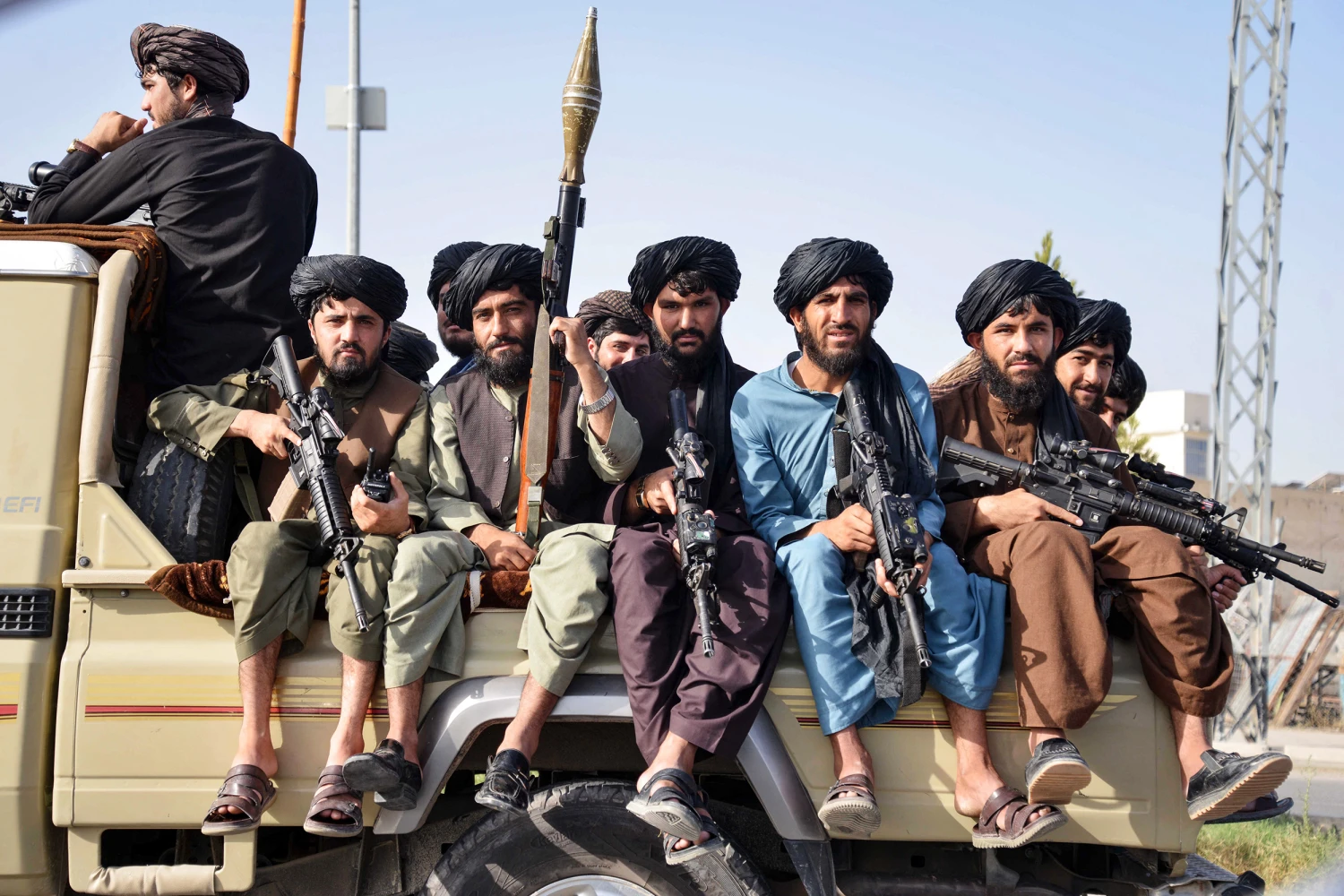
Taliban soldiers
Where the Taliban emirate accused Pakistan of supporting a Daesh underground, Pakistan’s military-led coalition regime has accused Afghanistan of supporting insurgents, including a namesake insurgency in northwest Pakistan’s Pashtun borderland. The more pressing insurgency in Pakistan stems neither from Afghan malfeasance, as Islamabad claims, nor is it an entirely domestic affair, as Kabul counters.
Buried among the rhetoric, blame-trading, and saber-rattling are several inconvenient truths that neither regime nor its cheerleaders seems inclined to acknowledge, but which are critical to factor into any solution.
Contrasting Claims and MisrepresentationsPakistani accusers rightly note that insurgent leaders Nur-Wali Asim of the Mahsud clan and Gul Bahadur of the Wazir clan have received refuge in Afghanistan, and that attacks picked up pace since the Taliban return to Kabul in 2021. Afghan rejoinders rightly point out that the roots of Pakistan’s crisis are domestic and largely self-inflicted: a consistently militaristic policy in the borderland has failed for years regardless of insurgent leaders’ whereabouts, while none of Afghanistan’s other neighbors have faced such a problem despite their own insurgents’ “refuge” in the emirate.
The most extreme claims on either side resort to obfuscation. On one hand are exaggerated Taliban claims of Pakistani complicity in the American occupation of Afghanistan, which ignore the greater role of other states —especially Pakistan’s archrival India, a cheerleader of the occupation right to and beyond its end— and the respite that successive Pakistani regimes gave despite considerable American irritation. On the other hand are nationalistic claims, especially loud among supporters of the Pakistani military, that claim primordial Afghan hatred, conspiracy, and ingratitude.
Historical Ironies and Shifting AllegiancesThe latter claim contributed to an atmosphere where thousands of Afghans have been callously and humiliatingly uprooted from decades-long refuge. Ironically, this claim is itself a misdirected rejoinder to longstanding claims by the preceding, American-installed government of Afghanistan, which claimed in ethnicized terms that the Taliban were merely a cat’s paw of scheming “Punjabi” Pakistanis. By painting opponents as Pakistani puppets, the Afghan regimes of 2001–21 disingenuously portrayed their own utter dependency on a foreign invasion as a sort of nationalist virtue against their neighbor’s meddling.
The claim that Pakistan’s insurgency has accelerated since 2021 misses the point that for much of the prior fifteen years, its deceleration had been assisted through Taliban mediation, which persuaded many such militants to help fight the United States in Afghanistan rather than fight the Pakistani government. This stance was particularly emphasized by the Haqqanis, who have had a decades-long policy of support for Pakistan as far afield as Kashmir.
Nor was it an exclusively Taliban stance: in 2004–05, Pakistani corps commander Safdar Hussain, who led the first campaigns in northwest Pakistan against Wazir and Mahsud insurgents, urged them to abandon revolt against Islamabad and focus on jihad against the Americans. An unamused United States repeatedly attacked deals between the military and the insurgents; for example, Sirajuddin Haqqani mediated at Miranshah between Bahadur and the military in 2006, only for American airstrikes to sabotage the agreement.
The Rise of New Militants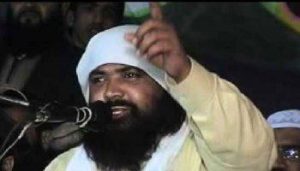
Qari Saifullah Akhtar
This prompted a number of Pakistani militants to disavow the Pakistani regime and take up arms. Many were longstanding fighters who felt betrayed by the state that had once backed them, and ignored the pleas of such scholars as the Usmani brothers, Muftis Taqi and Rafi, to stand down.
One such militant was Saifullah Akhtar, whom Rafi had known in the 1980s and complimented in a subsequent 1990s book that also saluted the Taliban movement; his newfound hostility to a regime within whose military he had significant contacts was particularly dangerous, yet he was eventually persuaded to leave Pakistan and fight alongside the Taliban in Afghanistan, where he was killed.
A Balancing Act Between Foes and AlliesThe modus vivendi that the Taliban adopted was to maintain ties with both sides of the Pakistan war, the army and the insurgency, in a manner similar to how the Pakistani military kept links with both sides of the Afghan war, the United States and the Taliban. Rejecting insurgency against Pakistan, on numerous occasions, Taliban mediation redirected Pakistani insurgents against the United States.
A number of secondary Taliban commanders did sympathize with the Pakistani insurgency against a state they saw as having betrayed them: a sentiment that no doubt retains currency in the rank-and-file. But this was always an informal minority: Sirajuddin, whose uncles Khalilur-Rahman Ahmad and Ibrahim Umari played a key role in coordination with Pakistani officers, also urged such Pakistani counterparts as Bahadur to focus their attention on the Americans in Afghanistan.
This preceded a major turning point in 2014, during a major campaign by the Pakistani army, yet this success relied in part on also internecine disputes among the insurgents after the elimination of a series of leaders.
A major factor was the emergence of Daesh, to which large parts of the insurgency defected. Although it opposed both rival governments in Islamabad and Kabul, Daesh’s principal target was the Taliban, whom it accused of inauthenticity and—ironically given today’s circumstances—servitude to Pakistan. The conflict with Daesh forced the Taliban to draw closer to Pakistani insurgents, such as Bahadur and Mahsud preacher Nur-Wali Asim, as a counterweight.
Reform Efforts Under Imran Khan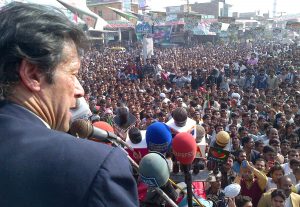
Imran Khan
A major factor in draining the insurgency was the major attempts at reform made by Imran Khan’s Insaf Party, which assumed Khyber-Pakhtunkhwa’s provincial government. Khan had drawn support in large part from his opposition to the American “war on terror” and Pakistani acquiescence therein: by all accounts, the Insaf government in Khyber-Pakhtunkhwa was a major improvement, and retains major support in the province to this day.
It also tried to incorporate the historically autonomous, but increasingly militarized, Waziristan borderland under its control, which Nur-Wali opposed as this approach promised to solve many of the grievances on which he drew.
Nur-Wali’s Hardline StanceThough Nur-Wali reorganized the insurgency and, to an extent, its conduct, he refused to negotiate, painting his fight as part of a historical Mahsud resistance against British colonialism and a Pakistani state seen as its American-backed heir. In fact, the Mahsuds who fiercely fought Britain had largely supported Pakistan right up to the 2004 incursion in Waziristan—a product not of primordial Pakistani illegitimacy but rather involvement in the much more recent American war on terror. This stance was far harsher than that of the Taliban and even affiliated insurgents like Bahadur, and has precluded meaningful negotiations.
Insurgencies and Unneighborly BehaviorThe Pakistani claim that the Taliban’s return to power in 2021 coincided with a sharp uptick in attacks within Pakistan ignores the fact that the previous decade’s decline owed in part to repeated Taliban mediation on Islamabad’s behalf. On the other hand, as I pointed out at the time, Taliban wariness of Daesh meant that they cultivated ties with Pakistani insurgents: famously, upon capturing Kabul, they executed Daesh leader Ziaul-Haq Zia but released the Pakistani insurgent leader Faqir Mohammad.
Yet this was not an inherently anti-Pakistan move: Faqir had been imprisoned by the previous Afghan regime precisely because he was seen as more amenable to negotiations with Islamabad, and Sirajuddin Haqqani, now Taliban interior minister, immediately held negotiations between Imran’s Pakistani government, including the military represented by spymaster Faiz Hameed, and militants like Bahadur.
Post-Imran Escalation and MisstepsWhether this would have succeeded is unknown—certainly some militants continued to snipe away at Pakistan regardless and might have never reconciled—but the 2022 coup that ousted Imran, and quickly courted relations with an anti-Taliban United States, escalating not through targeting insurgent units in Pakistan but bombing across the Afghan border—the sort of unilateral action that was bound to raise Taliban hackles. The Pakistani military, led by Asim Munir, has made a point of theatrical escalation with Kabul—yet its initial focus was not the Pakistani insurgency, which gained ground over 2023, but crushing Imran’s still-influential party through major, occasionally bloody, suppression and electoral manipulation.
Deportations and Counterproductive PolicyThe response toward the insurgency has similarly been unimpressive and counterproductive to its stated aims, particularly the mass deportation of Afghans that began in autumn 2023. This was a political decision that aimed to give the impression of vigilance by whipping up anti-Afghan sentiments; in its rivalry with the Insaf party, the military establishment and its many hangers-on have portrayed both Taliban and Afghans broadly as scheming confederates of Imran in a sort of fifth column. This provoked widespread hostility among affected communities in the borderland.
It was also practically counterproductive: the mass deportations of Afghans across the border logistically confounded the task that Pakistan demanded of the Taliban, to intercept Pakistani insurgents. This was further complicated by the fact that Daesh remained an underground threat, assassinating many Taliban officials, fighters, and leaders, including Sirajuddin’s uncle Khalilur-Rahman, governor-general Daud Muzamil, and corps commander Hamdullah Mukhlis. With their own challenges, the Taliban are hardly in a position to solve Pakistan’s largely self-inflicted woes.
Half-Hearted Cooperation and Growing MisgivingsThis does not, however, remove the fact that Taliban cooperation has been at best half-hearted. In part, this stems from its reluctance to alienate non-Daesh militants, who have, in fact, flared up in indignation whenever the emirate has tried to relocate them away from the Pakistani border. In part, it stems from misgivings toward a confrontational Pakistani military bent on scapegoating Afghanistan for all internal challenges. It also stems from an insistence that the Pakistani insurgency is a primarily internal issue: after all, the Taliban also hosts opposition militants from other countries, none of which have caused anywhere near the amount of trouble as the Pakistani insurgents. To this extent, the argument made by both Khan and the Taliban that the Pakistani insurgency stems from internal Pakistani grievances holds truth.
Parallel Rejections and Border TensionsYet if the Pakistani military has been aggressive, Taliban denials ring irrelevant if not hollow. The indignation the emirate evinced when Islamabad flirted with exiled critics is hardly more than that in Pakistan when it sees the likes of Nur-Wali given deferential treatment in Afghanistan. The rejectionism that Nur-Wali directs toward Islamabad is similar to that which Daesh directs toward Kabul. No state, Pakistan or others, tolerates repeated cross-border raids of the type the Taliban are unwilling to interdict for reasons more of political expediency than principle.
Structural Causes and Continuing ViolenceOn the other hand, the emirate’s ability to control the border has been severely circumscribed by such clumsy and destructive policies as the mass deportations of Afghans. The Taliban spent over a decade, even while fighting a guerrilla war against the United States, mediating with the Pakistani insurgency on behalf of the same military that now scapegoats it.
The Pakistani war is not a product of Taliban inaction: even if the Taliban surrendered every Pakistani insurgent leader from Afghan territory, the twenty-year militarization, social upheaval, and political disputes that exacerbated the war remain. Some twenty senior insurgent leaders have been killed, almost on a yearly basis, since the Waziristan conflict broke out in the mid-2000s, and there is little reason to suppose that the capture or killing of Nur-Wali or Bahadur would make a long-term difference without addressing issues in an approach that the military of late has flatly shunned. Bombing Kabul in pursuit of Nur-Wali might give some short-term catharsis and a few bragging rights, but it only threatens to exacerbate mistrust without addressing these underlying issues.
When these obvious points are raised, however, a military increasingly intolerant of contradiction lashes out.
Forward Steps and BarriersThe solution is not as complicated as it might seem. Both Pakistan and Afghanistan’s insurgents stem from the same geographic stretch, the border highlands, which both states have long struggled to control. The simplest task is, in military terms, joint security collaboration against both Afghan and Pakistani insurgents, and in sociopolitical terms, an improved and more accountable governance. A sensible policy would see Afghanistan and Pakistan cooperate on this region rather than trade mostly spurious accusations and recriminations.
The barrier to such commonsense is the exponential mutual mistrust, related to the two neighbors’ addiction to alliances that have only ever escalated the problem—for Taliban with Pakistani insurgents who are airily whitewashed as “good Muslims” regardless of the number of Muslims their war victimizes; and for Pakistan’s military with a United States that it has shamelessly courted since 2022, partly pursuant to its feud with Imran, regardless of the sociopolitical costs it brings to the country.
It is easier to scapegoat a neighbor through selectively remembered or distorted history rather than introspect and apply to them the same standards sought in one’s own country: so much for Muslim neighbors in the “Islamic emirate” and the “Islamic nuclear power.”
Related:Afghanistan’s Experiment: Progress and Peril Under Taliban Rule
The post Allies In War, Enemies In Peace: The Unraveling Of Pakistan–Taliban Relations appeared first on MuslimMatters.org.
Palestine in Pictures: September 2025
Sheila Canby obituary
American art historian and museum curator with a special focus on Iran and the Islamic world
For more than four decades, Sheila Canby, who has died aged 76 from complications of lung cancer, devoted her working life to Islamic art, and to the arts of Iran in particular.
She published extensively, created groundbreaking exhibitions – notably at the British Museum in London – and oversaw the installation of new galleries at the Metropolitan Museum of Art in New York.
Continue reading...Starmer says he expects debate about ‘full horror’ of what happened in Gaza when media allowed in – as it happened
PM hails Trump’s part in Middle East peace deal but says what matters now is implementation. This live blog is closed
Europe’s most senior human rights official has called on Shabana Mahmood to review UK protest laws after mass arrests over the ban on Palestine Action, Rajeev Syal reports.
The Commons authorities have confirmed that there will be two statements in the chamber after 12.30pm: first, Keir Starmer on the Middle East peace summit, and then Hilary Benn, the Northern Ireland secretary, on the Northern Ireland Troubles bill being published today.
Continue reading...Balfour’s university skirts demands it end entanglement in Gaza genocide
Minister ‘appalled’ at Muslim charity run in London that excluded women
Event in Victoria Park organised by East London mosque and London Muslim Centre was open to ‘men, boys of all ages and girls under 12’
The communities secretary has said it was “absolutely unacceptable” for women to be excluded from taking part in a Muslim charity run in London.
The event on Sunday, in Victoria Park, Tower Hamlets, was advertised on the Muslim Charity Run website as an “inclusive 5km race” for “runners and supporters of all ages and abilities” – open to “men, boys of all ages and girls under 12”.
Continue reading...What I saw from the open hatch of an aid plane over Gaza
Can India’s Financial System Make Room For Faith?
India, with over 200 million Muslims, hosts the third-largest Muslim population globally. Despite this, the country’s banking system has largely failed to cater to the community’s specific financial needs. This exclusion isn’t due to a lack of access or equal opportunity, but stems from significant theological differences between Islamic finance principles and the conventional banking system.
Socio-Economic DisparitiesThe Sachar Committee Report (2006) highlighted the socio-economic backwardness of Muslims in India. Despite constituting about 14% of the population, Muslims held only 7.4% of bank deposits and received just 4.7% of bank credit. This disparity limits their ability to access institutional credit for significant endeavors, such as starting businesses or pursuing higher education, thereby affecting their representation in business and wealth accumulation.
A 2015 analysis by the ET Intelligence Group of the BSE 500 companies further revealed that Muslim representation in director and top executive positions was a mere 2.67%, indicating a significant underrepresentation in corporate leadership.
Further, Muslims hold only 9.2% of gold assets, compared to 31% held by Hindu high castes and 39% by OBCs, highlighting their limited access to collateral for financial transactions.
Theological Foundations of Islamic FinanceIslamic finance is grounded in principles that promote justice, welfare, and ethical economic practices. Central to these principles is the prohibition of ‘riba’ (interest), as it is considered exploitative and unjust.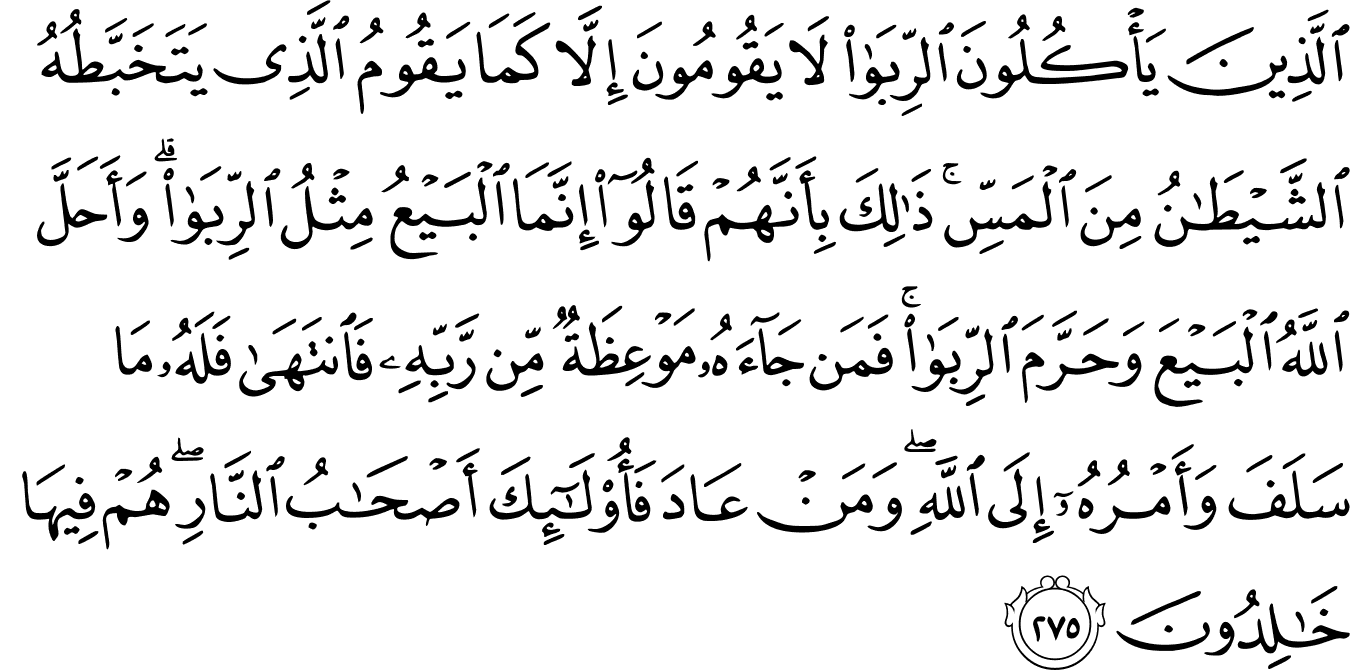
“Those who consume interest cannot stand [on the Day of Resurrection] except as one stands who is being beaten by Satan into insanity. That is because they say, “Trade is [just] like interest.” But Allah has permitted trade and has forbidden interest. So whoever has received an admonition from his Lord and desists may have what is past, and his affair rests with Allah. But whoever returns to [dealing in interest or usury] – those are the companions of the Fire; they will abide eternally therein.” [Surah Al-Baqarah: 2;275]
“O you who have believed, do not consume usury, doubled and multiplied, but fear Allah that you may be successful.” [Surah ‘Ali-Imran: 3;130]
Instead, Islamic finance encourages (1) asset-backed transactions:
Narrated by Hakim b. Hizam  : “I asked Messenger of Allah
: “I asked Messenger of Allah  , I said: ‘A man came to me asking to buy something that I did not have. Can I buy it from the market for him and then give it to him?’ He said: ‘Do not sell what is not with you.'” [Jami` at-Tirmidhi 1232]
, I said: ‘A man came to me asking to buy something that I did not have. Can I buy it from the market for him and then give it to him?’ He said: ‘Do not sell what is not with you.'” [Jami` at-Tirmidhi 1232]
(2) profit and loss sharing:
Narrated ‘Urwah Al-Bariqi: “The Messenger of Allah  gave me on Dinar to purchase a sheep for him. So I purchased two sheeps for him, and I sold one of them for a Dinar. So I returned with the sheep and the Dinar to the Prophet
gave me on Dinar to purchase a sheep for him. So I purchased two sheeps for him, and I sold one of them for a Dinar. So I returned with the sheep and the Dinar to the Prophet  , and I mentioned what had happened and he said: ‘May Allah bless you in your business dealings.’ After that we went to Kunasah in Al-Kufah, and he made tremendous profits. He was among the wealthiest of the people in Al-Kufah.” [Jami` at-Tirmidhi 1258],
, and I mentioned what had happened and he said: ‘May Allah bless you in your business dealings.’ After that we went to Kunasah in Al-Kufah, and he made tremendous profits. He was among the wealthiest of the people in Al-Kufah.” [Jami` at-Tirmidhi 1258],
Wealth in Islam is viewed as a means to promote circulation and mutual support,
Abu Huraira reported Allah’s Messenger ﷺ as saying: “Charity does not decrease wealth, no one forgives another except that Allah increases his honor, and no one humbles himself for the sake of Allah except that Allah raises his status.” [Sahih Muslim: 2588]
and not as a commodity to be hoarded.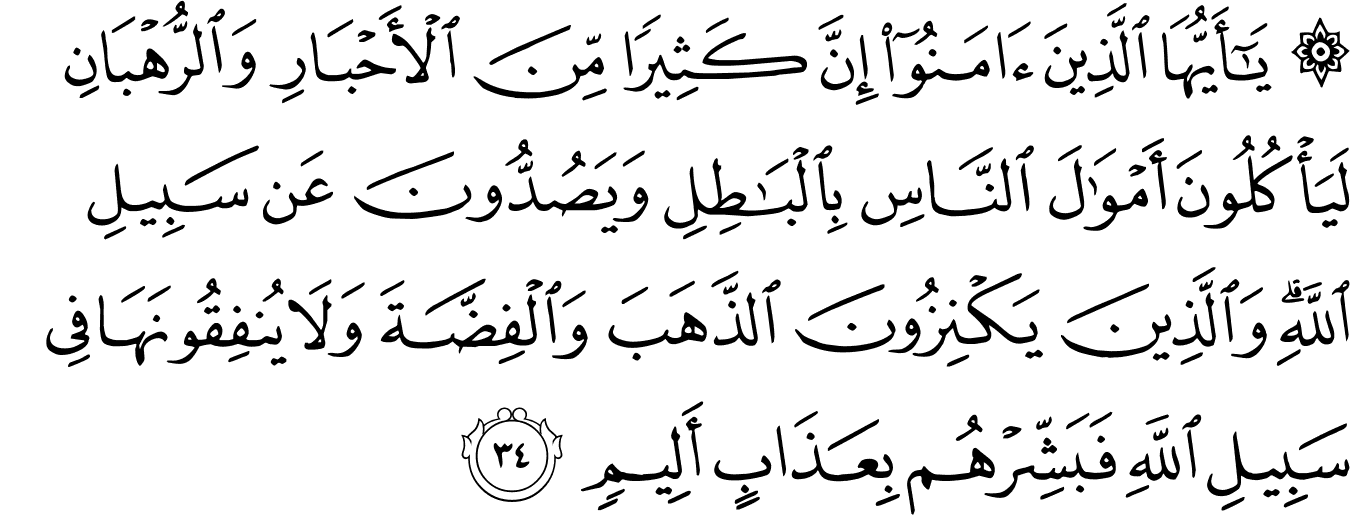
“O you who have believed, indeed many of the scholars and the monks devour the wealth of people unjustly and avert [them] from the way of Allah. And those who hoard gold and silver and spend it not in the way of Allah – give them tidings of a painful punishment.” [Surah at-Tawbah; 9:34]
This approach aims to reduce economic disparities and promote a more equitable society:
Abu Wa’il narrated that Qais bin Abi Gharazah said:
Legal and Institutional Challenges“The Messenger of Allah
came to us, and we were what was called ‘brokers,’ he said: ‘O people of trade! Indeed the Shaitan and sin are present in the sale, so mix your sales with charity.'”He said: There are narrations on this topic from Al-Bara’ bin ‘Azib and Rifa’ah.
[Abu ‘Eisa said:] The Hadith of Qais bin Abi Gharazah (a narrator) is a Hasan Sahih Hadith.
Mansur, Al-A’mash, Habib bin Abi Thabit, and others reported it from Abu Wa’il, from Qais bin Abi Gharzah, from the Prophet ﷺ. We do not know of anything from the Prophet ﷺ narrated by Qais other than this. [Jami` at-Tirmidhi 1208]
The Banking Regulation Act, 1949, forms the backbone of India’s banking system, which is predominantly interest-based. This framework presents challenges for integrating Islamic finance, which operates on principles contrary to interest-based lending.
Various committees have examined the feasibility of Islamic banking in India. The Anand Sinha Committee (2005) deemed it incompatible within the existing legal framework, while the Raghuram Rajan Committee (2008) acknowledged that interest-free banking could provide financial access to excluded communities. However, in 2017, the proposal for Islamic banking was rejected, citing the need for equal opportunities for all citizens.
International Models and Secularism ConcernsCountries like the UK and Germany have implemented faith-based banking models, providing services that align with Islamic principles. Similarly, Muslim-majority nations such as Malaysia and Indonesia have successfully integrated Islamic banks alongside conventional ones, demonstrating that dual systems can coexist.
Critics argue that introducing Islamic banking in India could challenge secularism by creating a parallel economy. However, India already accommodates religious diversity in its economic and legal systems—such as Hindu Undivided Family (HUF) accounts enjoying tax benefits and the operation of Muslim personal law and waqf boards. Therefore, allowing financial models that address the ethical concerns of Muslims may enhance substantive equality without undermining secularism.
Potential Solutions: NBFCs and Cooperative ModelsEstablishing full-fledged Islamic banks in India faces significant legal and political challenges. However, Non-Banking Financial Companies (NBFCs) offer a viable alternative. Since NBFCs are not governed by the Banking Regulation Act, they can operate with asset-backed transactions in line with Islamic finance principles. An example is Cheraman Financial Services in Kerala, approved by the Reserve Bank of India in 2013, which provides interest-free financial services.1
Additionally, cooperative models and Islamic banking windows within existing institutions can provide services that align with Islamic principles, fostering economic inclusion and narrowing the participation gap between the Muslim community and others.
ConclusionThe debate on Islamic banking in India underscores a broader tension between a uniform legal framework and the need for economic inclusion of minorities. While establishing full-fledged Islamic banks may be legally and politically challenging, NBFCs, cooperative models, and Islamic banking windows within existing institutions offer feasible alternatives. What is needed is not rejection but regulatory innovation—approaches that can reconcile India’s secular commitments with the financial participation of one of its largest minority communities.
Related:
– Perpetual Outsiders: Accounts Of The History Of Islam In The Indian Subcontinent
– Meaningful Money: How Financial Literacy Amplifies Your Giving
1 https://prsindia.org/files/policy/policy_committee_reports/1242304423–Summary%20of%20Sachar%20Committee%20Report.pdf
The post Can India’s Financial System Make Room For Faith? appeared first on MuslimMatters.org.
Moonshot [Part 25] – Save The World Or Burn It Down
Deek shops for a house, and has a strange experience in a local gym.
Previous Chapters: Part 1 | Part 2 | Part 3 | Part 4 | Part 5 | Part 6 | Part 7 | Part 8 | Part 9 | Part 10 | Part 11 | Part 12 | Part 13| Part 14 | Part 15 | Part 16 | Part 17 | Part 18 | Part 19 | Part 20 | Part 21 | Part 22 | Part 23 | Part 24
* * *
“He who loses himself to gain the world is the poorest of all.” — Saadi Shirazi
Chats And Bad JokesHe spent the afternoon meeting with other real estate agents. A sweet but soft-hearted mom, then a surfer type with blonde dreads puffing on a vape.
The fourth was the worst. During a meeting with a broad-shouldered, bald broker in khakis, the man asked Deek about his ethnicity. When Deek said he was Arab, the broker joked that, “Anything’s better than a mud hut in the desert, right?” Deek felt his jaw tighten. He wanted to pick up the man’s laptop and throw it against the wall. Instead, he rose, smoothing his blazer. “Go dunk your head in the river.”
He walked out before his temper snapped and he personally drowned the man in the aforementioned river.
Discouraged, he called off the home search for the day. This was the moment when, before last week, he would have gone to a diner and buried his sorrows with a tuna melt and fries along with an ice-cold soda, followed by a slice of apple pie and a scoop of ice cream, or maybe a chocolate malt.
Food And FortuneAnd in fact, now that the Namer’s potion had completely dissipated from his system, his desire for junk food, especially sweets, had returned. But the cravings were not as strong as before, and he was able to resist them. And he was motivated to resist them, because he’d noticed that since he’d quit eating junk food, he had more energy, his skin was clearer, and most importantly of all, the humiliating bowel urgency he used to experience was gone.
This brought to mind how he’d soiled himself in the Porsche, and he waved a hand to dismiss the unpleasant memory.
He went to his favorite Chinese restaurant, Imperial Garden on Blackstone near Herndon, and had a plate of grilled fish with braised green beans.
He would have liked to invite Marco for dinner, but his friend was putting him in an impossible position. Marco himself couldn’t afford to eat out, and he wouldn’t let Deek pay. What option did that leave?
As he ate, he kept thinking of that poor girl, Sanaya, lying in a hospital bed in that dim room, half-starved, dying of a rare disease. And here he was, eating a good meal and thinking nothing of it.
Wait – why had he called her Sanaya? The girl’s name was Maryam! Astaghfirullah. La hawla wa la quwwata illa billah.
Appetite gone, he pushed aside the last of the food and broke open the cookie to extract the so-called fortune, which read, “Customer service is like taking a bath: you have to do it again.”
The ridiculousness of it hit Deek like laughing gas, and he burst into a fit of laughter, which halfway through turned into something else. He braced his elbow on the table and covered his face with his hand.
A hand patted his shoulder, and he looked up to see the elderly Chinese waiter, medium height and as skinny as a stalk of bamboo, with thick black hair above a high forehead. “Gonna be okay, mister.”
“What are you talking about?” Deek looked at the man through bleary eyes. “I’m laughing.”
“I know, I know. Food on the house. No charge.”
“What do you mean? I can pay.”
The waiter waggled his hand. “No charge. Everything gonna be okay.”
In the car, Deek wiped his eyes, embarrassed by the emotion that had overtaken him in public. The waiter’s words echoed, simple and absurdly comforting: Everything gonna be okay. Maybe it would, maybe it wouldn’t. But he was discovering that there was one place he could always retreat, one practice that he could hold on to like a lifeline – salat. He’d been praying a lot more lately, and it was becoming a refuge. Which was something he very much needed.
Help WantedBack at the hotel, he prayed, then sat at his computer and transferred two hundred thousand dollars to Dr. Rana’s account. Checking his email, he saw that the man had already sent him scans of medical bills totaling over a million dollars. He didn’t feel comfortable paying such huge sums online or over the phone. He decided that he would see an accountant the next day. He texted Imam Saleh, asking him if he knew a good Muslim accountant.
It occurred to him for the first time that he needed an assistant. He had a lot of money to manage, and letting it sit in cash was not good, as it would be eaten up over time by inflation, taxes, and zakat. He didn’t have time to manage his money, handle these various philanthropic ventures he was getting into, shop for a house, cook healthy meals, and all the other daily necessities of life. In fact, he might need more than one assistant. How did rich people handle this stuff?
A wave of weariness swept over him. He thought that his body, on some inner level, might still be recuperating from the various physical injuries he’d incurred. He took the time to change into pajamas, then lay on his right side on the huge bed, hugged the pillow tightly to his chest, and fell asleep.
Current Of DreamsHe awoke for Maghreb. There was a response from Imam Saleh, with the contact info for a Pakistani accountant named Zakariyya. The man had graduated from Stanford but was still building his customer base. “Might be good to get in on the ground floor with him,” Saleh wrote.
He’d just finished praying when Dr. Rana called.
“Assalamu alaykum wa rahmatullah, Janab-e-Deek Sahib. I received the money you transferred. I only wanted to say shukriya from the depth of my heart. Your generosity is beyond expectation.”
Deek winced in embarrassment. “You’re welcome, Doctor. I need to see an accountant tomorrow to figure out what method I will use to pay the larger bills, but it will get done soon inshaAllah.”
“You must call me Sajid, please, Mr. Saghir sir.”
“And you should call me Deek. Our daughters are friends.”
“No, I cannot do that, sir. You have lifted a mountain from my shoulders. My daughter, my family, we will make dua’ for you day and night, inshaAllah. Please forgive me for what happened before. I did not know what test I was under. Khuda ap ko salamat rakhe.”
The call with Dr. Rana left Deek feeling sour. He’d chatted with the man a few times in the past, but Rana had never shown him this level of respect, nor displayed any real interest in his life. Suddenly, Deek was worthy of deference bordering on reverence? Why? Because he was rich now? Because he’d given Rana money? Wasn’t he the same man he’d been before? Well – that was life, he supposed. He’d better get used to it.
He paced the suite like a caged tiger. He knew that he had to do something. There was so much going on inside him. Since the Namer’s potion had worn off, loneliness had been rising inside him like flood waters, and now threatened to break the levees that protected his ability to think and work. A tornado of thoughts raged: Rania’s anger and pain, Sanaya’s coldness toward him, the frightening experiences of the last week, Faraz’s tears, the brothers in the masjid surrounding him as if he were a great tree and they were loggers trying to cut him down and pull out his pithy heart.
He remembered his visit to the river recently, and how it had calmed him. Those deep, beautiful waters called to him again. But even he was not crazy enough to go there alone at night.
Rania wasn’t answering his texts. Marco… Deek couldn’t bring himself to call. He pictured his old friend, sitting in that tiny apartment, and felt a wall between them that hadn’t been there before—the thick, invisible wall of Deek’s money.
So he decided to sweat.
Fluid FitnessHe pulled on gym clothes—new ones, tags barely off—and drove a mile down the road to Fluid Fitness, a slick little place he’d noticed in passing, its windows glowing with neon and posters of polished bodies in motion. Their slogan, plastered in chrome letters across the front, read: For People Like Us.
Inside, everything was spotless white and violet, like the interior of a spaceship. The sound system was playing music he didn’t recognize, all synthesized sounds and generic autotuned singing. He walked up to the front desk and asked if he could pay for the day only. The girl at the desk looked about nineteen, all eyeliner and indifference. She looked up from her phone reluctantly and gave Deek a slow up-and-down, lips twitching with something close to pity.
“Are you a bodybuilder?”
“No. I’m just naturally big.”
“We allow walk-ins,” she said, her voice flat as drywall. “Twenty bucks for the day. But…” She tilted her head. “This for reals isn’t the right fit for you. You might prefer Gold’s. They do heavy lifting there.”
Deek leaned on the counter. “I’m not a bodybuilder. And even if I was, so what? This is a gym, right?”
“This is a holistic, inclusive self-improvement environment.” This was a memorized response, Deek was sure.
He put twenty dollars on the counter. “Do I need to sign in?”
She sighed. “Fine. But there are rules.” She ticked them off on her fingers. “No heavy lifting. No grunting. No asking people how many sets they have left. No dropping weights. No, like, dripping. If you sweat, you need to wipe down. Also—no eye contact longer than three seconds. People find that aggressive.”
“I wouldn’t dream of sweating.”
The girl’s eyes narrowed. “And no sarcasm.”
Deek raised an eyebrow. “Anything else?”
“No protein shakes on the studio floor.”
“I’ll manage,” Deek said, sliding over the twenty.
Pleasure In PainIt was a small gym, and sparsely populated. The weight rack was lined with pastel dumbbells—three, five, and ten pounds—like Easter eggs in neat rows. The heaviest were twenty, glowing neon yellow. Deek picked them up, feeling like he was curling two bananas.
A kid next to him, crop-top and man-bun, was filming himself with a ring light. “Day twenty of my biceps journey,” he whispered into the phone, curling pink five-pounders. He spotted Deek. “Bro. You’re, like, dominating the space.”
“I’m just lifting,” Deek said.
“Yeah, but your energy is alpha.” The kid winced like it was a slur.
A half hour later, he was on the shoulder press machine. Rules or no rules, he was working hard, moving from one station to the next without pause, and setting the machines on the highest weight settings. Pushing the weights felt good. The dumbbells were obstacles he could move. Concrete goals that he could achieve. His muscles were sore, but he took pleasure in the pain, for the soreness made him feel alive, and humbled him at the same time.
The Wrong Tone As he completed a heavy bench press set, a slender, thirty-ish man with a clipboard appeared, polo shirt tucked in tight. His name tag identified him as Andrew.
As he completed a heavy bench press set, a slender, thirty-ish man with a clipboard appeared, polo shirt tucked in tight. His name tag identified him as Andrew.
“Sir?” Andrew’s smile was as thin as dental floss. “I’m the manager. You’ll have to leave. You’re setting the wrong tone.”
Deek sat up slowly, breathing hard. “The wrong tone?”
“You’re… intense,” the man said delicately. “Some of our members feel judged.”
Deek laughed. He couldn’t help it. “For lifting weights in a gym?”
“Not a gym. A holistic self-improvement environment.”
“You forgot to mention inclusive.”
The manager’s face reddened. “Yes, of course.”
Deek rested an elbow on his knee, studying the man. Andrew’s appearance was masculine, but there was definitely something effeminate about him. The way he curled his wrists, perhaps.
They really wanted to kick him out. Deek felt a rush of anger. Wanting to mess with the manager, Deek said, “My family came to America as refugees, and now you’re kicking me out of here as well?” Yet even though he’d said the words as a joke, there was truth in them, and the manager picked up on it, because his face went white.
“Oh! You are refugees?”
“From Iraq. My family fled in the middle of the night, one step ahead of the secret police. We hid in a truck with a false wall. We didn’t all – “ Deek paused, his throat tight. “We didn’t all make it.” He cleared his throat, embarrassed. What had started as a joke had turned into a confession.
Andrew put a hand to his chest. “Bless your heart.” Looking around, he clapped his hands and called out, “Gather round, everyone! Group huddle.”
“You don’t have to -” Deek began, but Andrew cut him off with a single finger to Deek’s chest.
The dozen or so patrons, all young men and women, gathered around.
“This is Deek,” Andrew said gravely. “He and his family are refugees. They went through the most awful experiences to get to this country. He might not know how things are done here, but we will make him welcome.”
The young people all nodded. One girl applauded lightly. Mortified beyond belief, Deek stood and said, “I’m sorry I made you uncomfortable. I’ll tone it down.”
The youth making the video offered his hand for a high five and said, “Your English is awesome. Let’s do a collab sometime.”
Deek had been ready to wrap up his workout, but now felt obliged to continue. He did a handful of slow, easy sets. As he was heading out, the girl at the desk handed him a laminated card. “One month free,” she said. “I think you’re so brave.”
In the car, Deek tipped his head back and laughed out loud. Americans would never cease to amaze him. They didn’t seem to know if they wanted to save the world or burn it to the ground. Both, he supposed.
In his hotel room that night, he texted Rania one last time: “We don’t have to be enemies.”
No reply came.
Realtor And SharkThe first thing he did the next morning was to check for messages from Rania or the girls. To his dismay, there were none. He texted the girls, inviting them to lunch tomorrow, which was a Sunday. Amira replied that she was attending her friend Salima’s birthday party. Sanaya simply responded, “No thanks.”
Checking his bank accounts, he saw that Rania had returned $70K of the last $100K he had sent her. He sat back in the desk chair, hands limp in his lap. What did this mean? Was she done with him? He felt like a car that had been drained of gasoline and now sat without spark or impetus.
 He moped, then ordered an omelette from room service and ate it as he surveyed the crypto market on his computer. Prices were beginning to decline, though just a little. He knew the decline would accelerate. Many investors would hold firm, thinking it was just a dip. A lot of people would get hammered into poverty.
He moped, then ordered an omelette from room service and ate it as he surveyed the crypto market on his computer. Prices were beginning to decline, though just a little. He knew the decline would accelerate. Many investors would hold firm, thinking it was just a dip. A lot of people would get hammered into poverty.
He needed to move, to do something productive. It was all he knew how to do. Specifically, he still needed to find a house. Like a knight donning his armor, he put on one of his fine suits, stood up straight, and went out.
In the course of his travels that morning, he stepped into an open house almost by accident — a modest property he knew wasn’t right, but it was on the riverfront and worth a look.
Inside, he paused to watch a debate between two real estate agents. The showing agent was a tall, sun-weathered guy in snakeskin boots and a cowboy hat. In front of him, a petite Latina with long black hair in a ponytail, and wearing an expensive-looking gray pantsuit and low heels, was ticking off points in rapid-fire, accented English.
“Your numbers are fantasy, Mister Dorian. The vacancy rate for properties in this price range is double what you claim. Do not insult me.” She snapped her fingers and waved at the house. “You take the deal now, or you’ll sit on this property another year while the weeds grow to your nose hairs.”
The cowboy sputtered, but the woman held up a hand. “Hold on.” She took out her phone, spoke in fast Spanish for a minute, then turned back to the cowboy. “We will increase our bid by three percent. You have twenty-four hours.” She began a rapid exit, heels clicking on the hardwood floor.
This was the agent Deek wanted.
He intercepted her, saying, “Excuse me.”
The woman stopped to look Deek up and down with sharp brown eyes. “I am not the showing agent. I am a buyer’s agent.” She resumed walking.
Deek ran after her. “That’s what I want! I’m a buyer.”
She stopped again and broke into a dazzling smile. “Bueno.” She extended her hand. “Marcela Gómez. Realtor, economist, shark when necessary.”
Fast And FierceStanding in the circular driveway, Deek told her what he wanted: privacy, land, something along the San Joaquin River, with actual river access. Something solidly built. The size of the house didn’t matter much, as he could expand it as needed.
“What you ask for is not cheap, Señor Saghir.” She rubbed her fingers together.
“I can pay.”
Marcela nodded briskly. “Leave it with me. I have cousins up and down this valley. In our country, Colombia, you have to be fast and fierce. If there’s a property to be had, they’ll, how do you say, smell it up?”
“Sniff it out.”
“Exacto. And I will get you the best price, even if I have to fight like a gehriyya to do it.”
“What’s a gehriyya?”
“You know. A fighter.”
“Oh. A guerrilla?”
“Gorilla is an animal, no?”
Deek smiled, restraining a laugh. “Don’t worry about the price. I just want a property that meets my needs, quickly.”
Marcela tilted her head. “Oh, money is not an object? Are you authorized to make that call?”
“It’s for me. I’m the buyer.”
Family Office“Ah, bueno. Just that high net worth individuals usually leave such things to the family office.”
“What’s a family office?”
Marcela pulled back, looking him up and down. “You are only recently wealthy?”
“Yeah. Why?”
Marcela checked her phone, then looked up at Deek as if surprised he was still there. “I am a real estate agent,” she said. “Not a finance instructor. Are you serious about buying a house or no?”
“Yes, I am. But could you please explain the family office thing? Humor me.”
She sighed. “Very wealthy families do not personally manage their finances. They have a family office, which is basically their own company, run by experts who work only for them.”
Deek considered this, rubbing his chin. “You’ve seen this before?”
“Claro que sí. I have a degree in international finance, and I worked in such an office for one of the flower families. You think the sugar dynasties in Cali or the oil families in Medellín run around calling realtors and accountants one by one? You, Señor Saghir, are operating like a man with one hundred thousand dollars, not however many of the millions you have.” She waved her hand up and down to indicate Deek and his fine suit.
Deek nodded slowly. “What kind of people would run an office like that?”
“The Chief Investment Officer. An office manager, real estate director, security officer, a personal CFO to handle family matters, and so on. A lawyer, unless you hire an outside firm. Sometimes a, how do you say, filantropia director.”
“Philanthropy. Wow. That’s a lot of people. I would want people who know how to invest according to Islamic guidelines. No interest, no stocks related to gambling, alcohol, and so on.”
“Pues, I’m sure you can find such people in your countries, like Dubai. And that’s the end of the finance lesson. D – Y – O – R.” She punctuated each letter with a snap of her fingers.
He didn’t bother telling her that Dubai was not a country. They parted ways with the understanding that Marcela would call him when she found a house.
***
Come back next week for Part 26 inshaAllah
Reader comments and constructive criticism are important to me, so please comment!
See the Story Index for Wael Abdelgawad’s other stories on this website.
Wael Abdelgawad’s novels – including Pieces of a Dream, The Repeaters and Zaid Karim Private Investigator – are available in ebook and print form on his author page at Amazon.com.
Related:
The post Moonshot [Part 25] – Save The World Or Burn It Down appeared first on MuslimMatters.org.
Islamic History Month Canada: A Bookish Roundup
October is Islamic History Month in Canada, federally recognized since 2007 as an opportunity to “to celebrate, inform, educate, and share with fellow Canadians the rich Muslim heritage and contributions to society.” This year’s theme is “Pioneering Muslim Communities in Canada,” learning about and giving homage to those in our communities who first established Islam in these lands. From small islands to sprawling urban centers, every Muslim community in Canada started with at least one person who believed in Allah  and created space for fellow believers to come together and build upwards.
and created space for fellow believers to come together and build upwards.
In addition to the pioneering history of Muslims in Canada, we must consider more recent history as well: the realities of Muslims in a post-9/11 world, contending with the surveillance state, illegal detention and torture, and ongoing harassment of Muslims in Canada. Figures such as Maher Arar and Omar Khader must have their stories remembered, and lessons learned from, on just how fraught our existence as Muslims in Canada truly is. The work of people like Monia Mazigh must never be forgotten, as it is the work that so many of us will need to draw from in our own confrontations with state-led Islamophobia.
– Journey of the Midnight Sun by Shazia Afzal
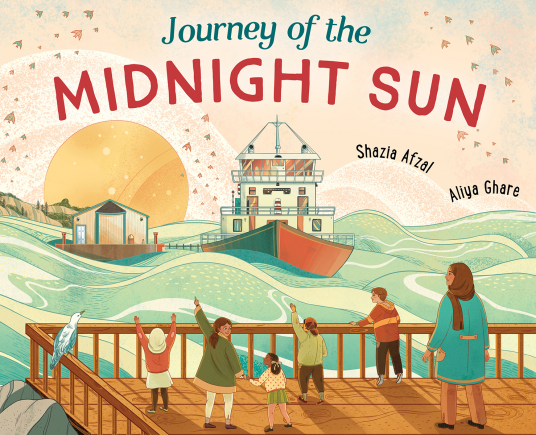 In 2010, a Winnipeg-based charity raised funds to build and ship a mosque to Inuvik, one of the most northern towns in Canada’s Arctic. A small but growing Muslim community there had been using a cramped trailer for their services, but there just wasn’t enough space. The mosque travelled over 4,000 kilometers on a journey fraught with poor weather, incomplete bridges, narrow roads, low traffic wires, and a deadline to get on the last barge heading up the Mackenzie River before the first winter freeze.
In 2010, a Winnipeg-based charity raised funds to build and ship a mosque to Inuvik, one of the most northern towns in Canada’s Arctic. A small but growing Muslim community there had been using a cramped trailer for their services, but there just wasn’t enough space. The mosque travelled over 4,000 kilometers on a journey fraught with poor weather, incomplete bridges, narrow roads, low traffic wires, and a deadline to get on the last barge heading up the Mackenzie River before the first winter freeze.
This stunning picture book makes the perfect Islamic History Month storytime choice!
– Minarets on the Horizon by Murray Hogben
 This book gives us a detailed look at the Muslim presence in Canada, starting with the pioneer settlers from Syria/Lebanon and the Balkans in the early twentieth century and moving on to the more modern midcentury arrivals from South Asia and Africa. Told in their own words, the stories in this collection give us a rare insight into the lives of these pioneer Muslims.
This book gives us a detailed look at the Muslim presence in Canada, starting with the pioneer settlers from Syria/Lebanon and the Balkans in the early twentieth century and moving on to the more modern midcentury arrivals from South Asia and Africa. Told in their own words, the stories in this collection give us a rare insight into the lives of these pioneer Muslims.
Punjabi men in the timber mills of British Columbia; Lebanese Arab peddlers on foot or horse cart on the rural highways of Alberta, Saskatchewan, and Manitoba; men venturing north on dog sleighs to trade for fur; young women arriving to start families and soon to become family matriarchs; shopkeepers serving small provincial towns and big cities; and finally, students and professionals arriving in the postwar urban centres.
Wherever they went, they bore the brunt of xenophobia and acknowledged kindnesses, as they adapted and sought out fellow worshippers and set up community centres and mosques.
 – Al-Rashid Mosque: Building Canadian Muslim Communities by Earle H. Waugh
– Al-Rashid Mosque: Building Canadian Muslim Communities by Earle H. Waugh
Al Rashid Mosque, Canada’s first and one of the earliest in North America, was erected in Edmonton in the depths of the Depression of the 1930s. Over time, the story of this first mosque, which served as a magnet for more Lebanese Muslim immigrants to Edmonton, was woven into the folklore of the local community.
Edmonton’s Al Rashid Mosque has played a key role in Islam’s Canadian development. Founded by Muslims from Lebanon, it has grown into a vibrant community fully integrated into Canada’s cultural mosaic. The mosque continues to be a concrete expression of social good, a symbol of a proud Muslim Canadian identity. Al Rashid Mosque provides a welcome introduction to the ethics and values of homegrown Muslims. The book traces the mosque’s role in education and community leadership and celebrates the numerous contributions of Muslim Canadians in Edmonton and across Canada.
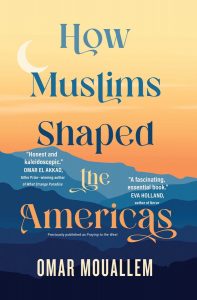 – How Muslims Shaped the Americas by Omar Mouallem
– How Muslims Shaped the Americas by Omar Mouallem
In How Muslims Shaped the Americas, Mouallem explores the unknown history of Islam across the Americas, traveling to thirteen unique mosques in search of an answer to how this religion has survived and thrived so far from the place of its origin. From California to Quebec, and from Brazil to Canada’s icy north, he meets the members of fascinating communities, all of whom provide different perspectives on what it means to be Muslim. Along this journey, he comes to understand that Islam has played a fascinating role in how the Americas were shaped—from industrialization to the changing winds of politics.
Despite my distaste with the author himself, this book does an excellent job of exploring both Al-Rashid Masjid and the Midnight Sun Mosque (the very same one from the picture book!), as well as pausing to pay homage to the victims and survivors of the Quebec City Mosque Massacre in Grande Mosquee de Quebec.
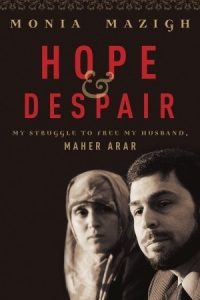 – Hope & Despair: My Struggle to Free My Husband, Maher Arar by Monia Mazigh
– Hope & Despair: My Struggle to Free My Husband, Maher Arar by Monia Mazigh
This book traces the inspiring story of Monia Mazigh’s courageous fight to free her husband, Maher Arar, from a Syrian jail. From the moment Maher Arar, a Canadian citizen, was disappeared into the bowels of Bashar al-Assad’s dungeons, Monia Mazigh worked tirelessly against the Canadian government, security intelligence agencies, and media to bring her husband home and get him justice.
She began a tireless campaign to bring public attention and government action to her husband’s plight, eventually resulting in his release and return to Canada. Arar and Mazigh’s story is a chilling reminder to all Canadian Muslims of the realities of living under systemic Islamophobia, and is an important lesson to us all on resisting and holding our government accountable.
– Systemic Islamophobia in Canada: A Research Agenda
Systemic Islamophobia in Canada presents critical perspectives on systemic Islamophobia in Canadian politics, law, and society, and maps areas for future research and inquiry. The authors consist of both scholars and professionals who encounter in the ordinary course of their work the – sometimes banal, sometimes surprising – operation of systemic Islamophobia. Centring the lived realities of Muslims primarily in Canada, but internationally as well, the contributors identify the limits of democratic accountability in the operation of our shared institutions of government
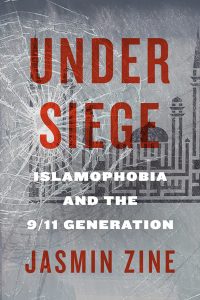 – Under Siege: Islamophobia and the 9/11 Generation by Jazmine Zine
– Under Siege: Islamophobia and the 9/11 Generation by Jazmine Zine
Under Siege explores the lives of Canadian Muslim youth belonging to the 9/11 generation as they navigate these fraught times of global war and terror. While many studies address contemporary manifestations of Islamophobia and anti-Muslim racism, few have focused on the toll this takes on Muslim communities, especially among younger generations.
Covering topics such as citizenship, identity and belonging, securitization, radicalization, campus culture in an age of empire, and subaltern Muslim counterpublics and resistance, Under Siege provides a unique and comprehensive examination of the complex realities of Muslim youth in a post-9/11 world.
This Islamic History Month, Canadian Muslim communities should take the time to honour our pioneering members, teach our youth about the Islamic history of Canadian Muslims, and educate ourselves on how to navigate living in this country that remains riddled with systemic Islamophobia.
Related:
From the MuslimMatters Bookshelf: Black (Muslim) History Month Reads
The post Islamic History Month Canada: A Bookish Roundup appeared first on MuslimMatters.org.
Livestream: Is the genocide over? Inside the Gaza ceasefire deal
Jeremy Scahill gives insight from resistance negotiators and stresses need for ongoing activism. Donya Abu Sitta in Gaza on hopes after genocide. Fighters blowing up a tank inside a new Israeli base.
Man fined for burning Qur’an in London wins appeal against conviction
Judge says Hamit Coskun has ‘right to offend’ and overturns conviction for religiously aggravated public order offence
A man who was fined for setting fire to a Qur’an outside the Turkish consulate in London has won an appeal against his conviction after a judge backed his “right to offend”.
Hamit Coskun was found guilty of a religiously aggravated public order offence in June after shouting “fuck Islam” and “Islam is religion of terrorism” while burning the holy book in February.
Continue reading...
